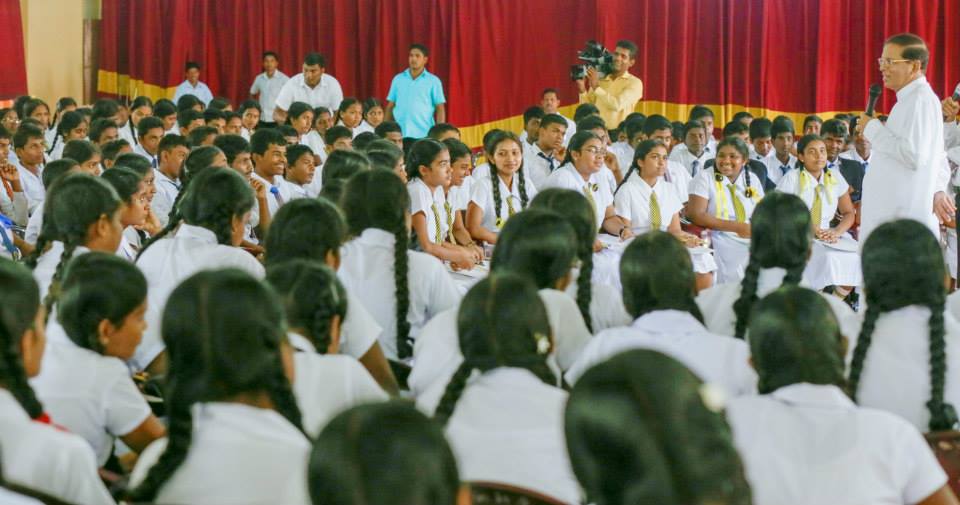The Political Challenge Of Carrying The People Through Transitional Justice
By Jehan Perera –February 1, 2016

President Maithripala Sirisena’s rejection of foreign involvement in the judicial accountability process in Sri Lanka has once again brought to the fore the difficult issue of war crimes in the course of the war. The most controversial aspect of the UN Human Rights Council resolution that was co-signed by the Sri Lankan government last October was the need for international participation in the judicial accountability mechanism. The UNHRC resolution stated that it “affirms that a credible justice process should include independent judicial and prosecutorial institutions led by individuals known for integrity and impartiality; and further affirms in this regard the importance of participation in a Sri Lankan judicial mechanism, including the Special Counsel’s office, of Commonwealth and other foreign judges, defence lawyers, and authorised prosecutors and investigators.”
It was the issue of accountability for war crimes and other serious human rights violations that from 2009, the very year that the war ended, pitted the Sri Lankan government against the Western –led international community. The position of the former government was one of total rejection of any international role in looking at the past. The former government claimed that no war crimes had occurred and, in any event, the war was an internal one and the international community had no role in deciding how to deal with issues that had arisen from it. However, the government failed to impress enough members of the UN Human Rights Council, which ensured that Sri Lanka faced repeated defeats when it came to the passage of resolutions that called upon the Sri Lankan government to delve credibly into the past.
 In the face of the deadlock in positions of the government and UN Human Rights Council, the question was when the Western-led international community would impose punitive sanctions against the Sri Lanka. Travel bans on Sri Lankan leaders and economic sanctions became possibilities. Both of these sanctions were put into effect to some degree. Military personnel who had been accused of committing war crimes were denied visas to attend training programmes abroad. The loss of the EU’s GSP Plus tariff concession was a major blow to the garment industry which was the second biggest earner of foreign exchange to the country and resulted in the closure of hundreds of small factories. The EU cited Sri Lanka’s failure to meet human rights conventions relevant for benefits under the scheme. If the country is to regain these benefits it will be necessary for the government to show satisfactory progress in meeting its human rights obligations.
In the face of the deadlock in positions of the government and UN Human Rights Council, the question was when the Western-led international community would impose punitive sanctions against the Sri Lanka. Travel bans on Sri Lankan leaders and economic sanctions became possibilities. Both of these sanctions were put into effect to some degree. Military personnel who had been accused of committing war crimes were denied visas to attend training programmes abroad. The loss of the EU’s GSP Plus tariff concession was a major blow to the garment industry which was the second biggest earner of foreign exchange to the country and resulted in the closure of hundreds of small factories. The EU cited Sri Lanka’s failure to meet human rights conventions relevant for benefits under the scheme. If the country is to regain these benefits it will be necessary for the government to show satisfactory progress in meeting its human rights obligations.
Political Concerns Read More

